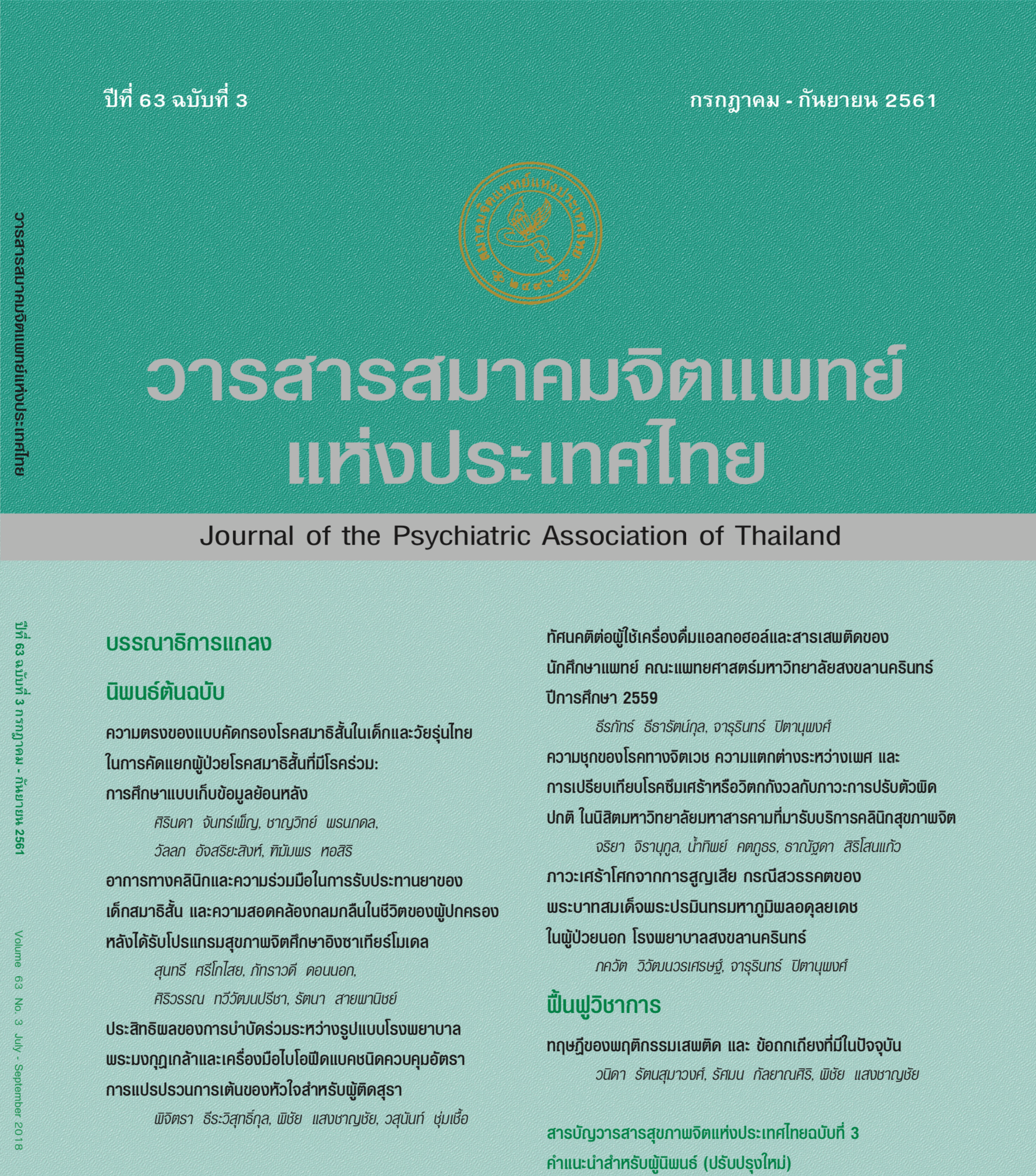The Effectiveness of Combination of Phramongkutklao Model with Heart Rate Variability Biofeedback in Alcohol Use Disorder Patients
Main Article Content
Abstract
Objective : To compare stress and percentage of abstinent days between Phramongkutklao
inpatient rehabilitation program (PMK model) and combination of PMK model with heart rate
variability (HRV) biofeedback inpatients with alcohol use disorder at Phramongkutklao Hospital.
Methods : A single-blind randomized controlled trial to compare the effectiveness of the
combination of PMK model with HRV biofeedback consisting of 16 sessions with 30-60 minutes,
session, 4 days a week, for 4 weeks continuously as a treatment group with PMK model as a
control group. The stress scores were assessed at baseline, post-intervention and 1 month
follow-up. Percentage of abstinent days was assessed at 1 month follow-up.
Results : 35 inpatients with alcohol use disorder were randomized into, 17 patients as the
intervention group and 18 patients as the control group. There were no significant differences
in mean of stress scores between two groups at baseline (p=0.231). The treatment group had
more reduction of the stress scores than the control group with statistically significant (p=0.002)
at 1 month follow-up. Furthermore, the treatment group had more percentage of abstinent days
than the control group with statistically significant (p=0.017) at 1 month follow-up.
Conclusion : The combination of PMK model with HRV biofeedback were more effective than
the PMK model only in stress reduction and increase percentage of abstinent days in patients
with alcohol use disorder.
Article Details
Articles submitted for consideration must not have been previously published or accepted for publication in any other journal, and must not be under review by any other journal.


